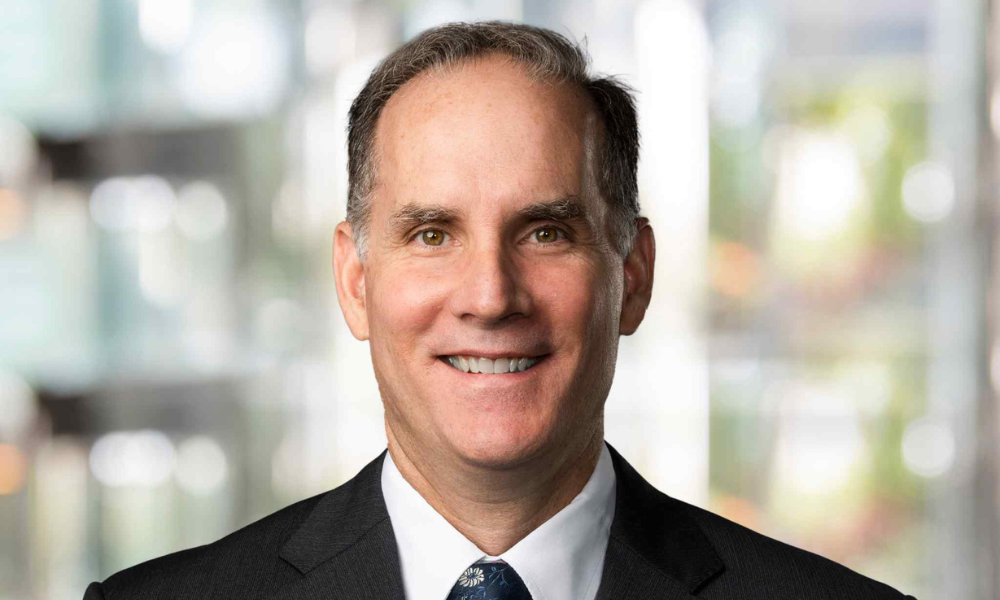
Brett Nelson talks his experience as a patent examiner in the US

Starting out in pre-med was what brought Brett Nelson to patent law. A stint working in vaccine tech opened his eyes to the value of IP protection, and since then, the US-qualified patent attorney has never looked back.
Nelson joined HopgoodGanim Lawyers in May as patents director in its IP, tech and cybersecurity practice. He has advised on the development of strategic IP portfolios that have a worldwide focus, and he believes that Brisbane is becoming a “greater Australasia for business and industry”.
In this interview, Nelson discusses his eagerness to help cultivate connections between Australia’s life sciences community and that of the US, as well as why Darth Vader’s story is proof that everyone deserves a second chance.
I’ve always been passionate about helping people, and when I was at school, I was considering pursuing a career in medicine as a doctor. I studied a pre-medical degree at Brigham Young University in the US, and I was hired to work in cancer research during university.
When I graduated, I was hired by a startup working on a novel conjugate vaccine technology. It’s now being used in humans. We worked with skilled patent attorneys during the development and licensing of the technology and I saw how important properly protecting intellectual property really was. I was then asked to work at the US Patent and Trademark Office (USPTO) as a patent examiner as my next role. This gave me exposure to cutting-edge biotechnology innovation, and I reviewed some of the first patent therapies for HIV. The USPTO offered to pay for law school and my career took off from there!
My favourite part of the job is the negotiation of patent applications and working with inventors and examiners to come to a resolution that economically benefits my client/s and also produces a strong patent. A strong patent is one that’s hard to design around and that is enforceable.
HopgoodGanim’s IP, technology and cyber security practice is expanding, with my appointment bringing new capability in patents. I have extensive experience working with clients and organisations in Asia and the US. Serving the community is important and HopgoodGanim Lawyers has a culture of giving back, which is amazing. I’m fortunate to work as a lawyer and for a firm that cares about the community. This aligns with my personal values, which I consider to be important.
As a firm, ‘technology’ sits within our practice group, led by partner Hayden Delaney. From a client-facing perspective, we are focusing closely on understanding the rapidly evolving intersection between technology, business and the law. We work with companies ranging from startups to global technology brands as part of the Australian ICT industry to ensure transformational projects succeed and compliance and regulatory requirements get met.
This year I’m excited about the connections I’m helping to foster between the life sciences community in Australia and the life sciences community in the US, and particularly in the Pacific Northwest, including in Washington.
Mental health. The law can be a grind, and often legal practitioners become so focused on their careers that the stress and long hours can result in a loss of meaningful connections. Helping lawyers find a healthy life balance is crucial to mental health.
Professionally, I’m a US-registered lawyer and patent attorney, so I can help companies in developing strategic IP portfolios that have a worldwide focus, including in China and the United States. I believe Brisbane is becoming a gateway to greater Australasia for business and industry, and HopgoodGanim also has an office in Perth, so our firm is well-placed to support clients in Asia and abroad. Industry innovation and business growth are leading to tremendous opportunities for our team to collaborate with companies from all over the world, as digitalisation drives greater connectedness across jurisdictions. Managing legal relationships across numerous countries and jurisdictions can be complex, but I thrive on a good challenge.
At HopgoodGanim, our IP, technology and cyber security practice handles complex challenges regularly for clients. While I bring a background in biotechnology and life sciences, we have other experienced and award-winning practitioners in-house focused on supporting clients with matters at the intersection between the law and technology, across fields such as information technology, cyber security, data protection and privacy.
These are big picture issues, and we take a big picture approach, while paying attention to the details, to supporting our clients with navigating their obligations, safeguarding their intellectual property and mitigating risk with technology. Responding and adapting to technological change isn’t just a pressing issue in the law in Australia though – it’s a global issue for us all in our daily lives and working careers − across all industries.
I’m really looking forward to further leveraging the cutting-edge innovation that’s occurring in Brisbane, and greater Australia, and working with our team and our clients to successfully traverse the gap between innovation and commercialization. This is at the top of my bucket list! Brisbane is such a great city and a wonderful place to live.
I also look forward to continuing to help our clients locally and internationally meet the challenges they will face to be able to succeed and grow in the world economy.
Darth Vader. His childhood and early life were horrible. He was taken from his mother at an early age and loses his first mentor. He later watches his mother die and goes on to lose his best friend and second mentor, his wife and his children. He is also manipulated to do very awful things to the point he becomes tormented. As we learn, he is redeemable and needs a second chance. It’s a powerful life lesson.